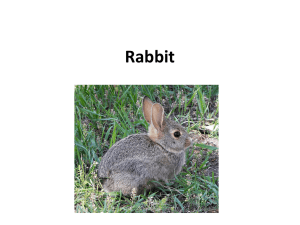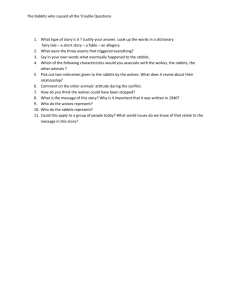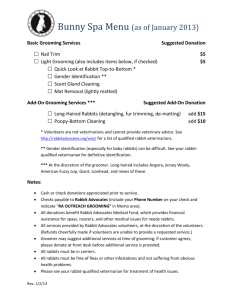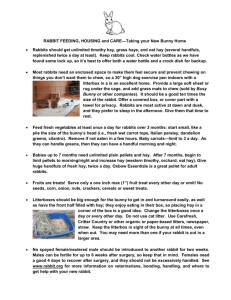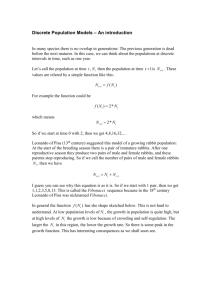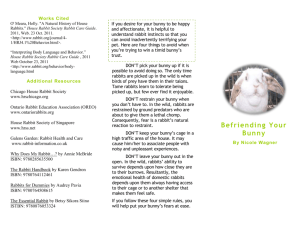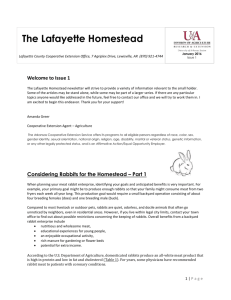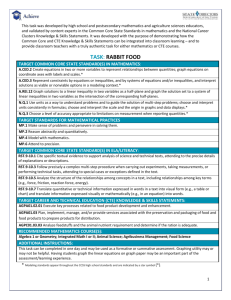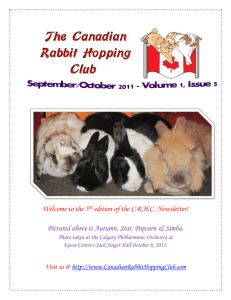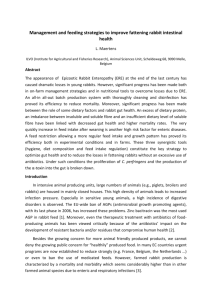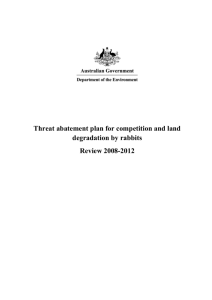Rabbit Care
advertisement
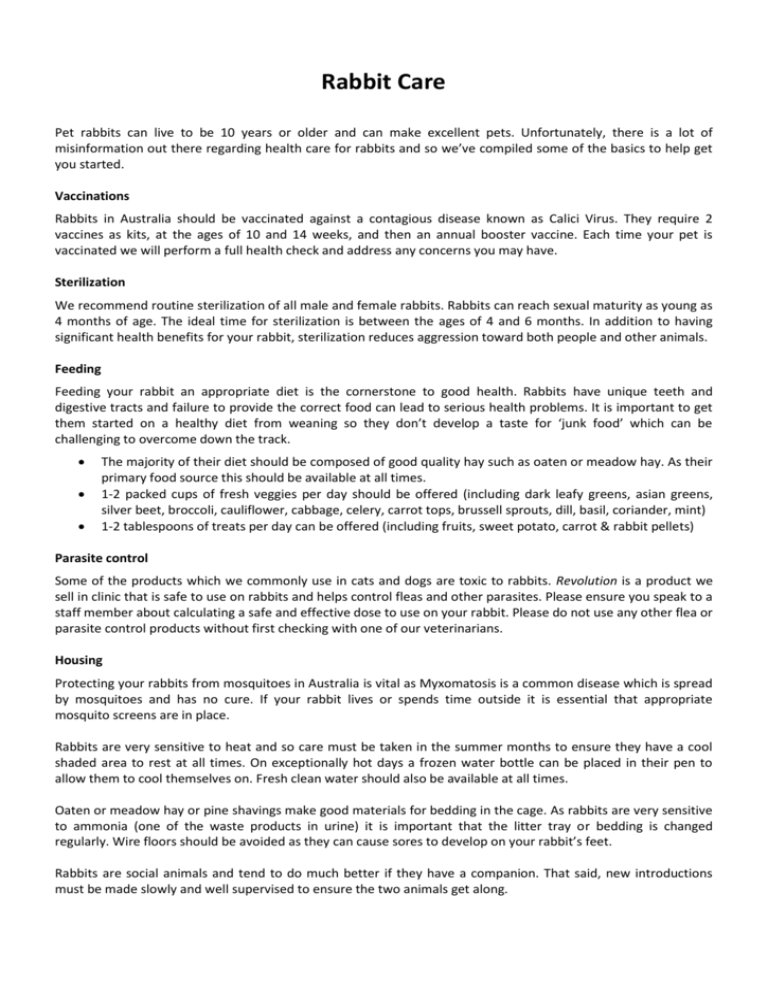
Rabbit Care Pet rabbits can live to be 10 years or older and can make excellent pets. Unfortunately, there is a lot of misinformation out there regarding health care for rabbits and so we’ve compiled some of the basics to help get you started. Vaccinations Rabbits in Australia should be vaccinated against a contagious disease known as Calici Virus. They require 2 vaccines as kits, at the ages of 10 and 14 weeks, and then an annual booster vaccine. Each time your pet is vaccinated we will perform a full health check and address any concerns you may have. Sterilization We recommend routine sterilization of all male and female rabbits. Rabbits can reach sexual maturity as young as 4 months of age. The ideal time for sterilization is between the ages of 4 and 6 months. In addition to having significant health benefits for your rabbit, sterilization reduces aggression toward both people and other animals. Feeding Feeding your rabbit an appropriate diet is the cornerstone to good health. Rabbits have unique teeth and digestive tracts and failure to provide the correct food can lead to serious health problems. It is important to get them started on a healthy diet from weaning so they don’t develop a taste for ‘junk food’ which can be challenging to overcome down the track. The majority of their diet should be composed of good quality hay such as oaten or meadow hay. As their primary food source this should be available at all times. 1-2 packed cups of fresh veggies per day should be offered (including dark leafy greens, asian greens, silver beet, broccoli, cauliflower, cabbage, celery, carrot tops, brussell sprouts, dill, basil, coriander, mint) 1-2 tablespoons of treats per day can be offered (including fruits, sweet potato, carrot & rabbit pellets) Parasite control Some of the products which we commonly use in cats and dogs are toxic to rabbits. Revolution is a product we sell in clinic that is safe to use on rabbits and helps control fleas and other parasites. Please ensure you speak to a staff member about calculating a safe and effective dose to use on your rabbit. Please do not use any other flea or parasite control products without first checking with one of our veterinarians. Housing Protecting your rabbits from mosquitoes in Australia is vital as Myxomatosis is a common disease which is spread by mosquitoes and has no cure. If your rabbit lives or spends time outside it is essential that appropriate mosquito screens are in place. Rabbits are very sensitive to heat and so care must be taken in the summer months to ensure they have a cool shaded area to rest at all times. On exceptionally hot days a frozen water bottle can be placed in their pen to allow them to cool themselves on. Fresh clean water should also be available at all times. Oaten or meadow hay or pine shavings make good materials for bedding in the cage. As rabbits are very sensitive to ammonia (one of the waste products in urine) it is important that the litter tray or bedding is changed regularly. Wire floors should be avoided as they can cause sores to develop on your rabbit’s feet. Rabbits are social animals and tend to do much better if they have a companion. That said, new introductions must be made slowly and well supervised to ensure the two animals get along. Rabbits should have something in their cage or enclosure which they are able to chew on. It helps keep their teeth healthy and gives them something to do. Wooden blocks or old phone books can be used. Rabbits can make wonderful pets and with proper care can live a long and healthy life. If you have any questions regarding your rabbit’s health or husbandry, please don’t hesitate to speak to one of our friendly staff.
